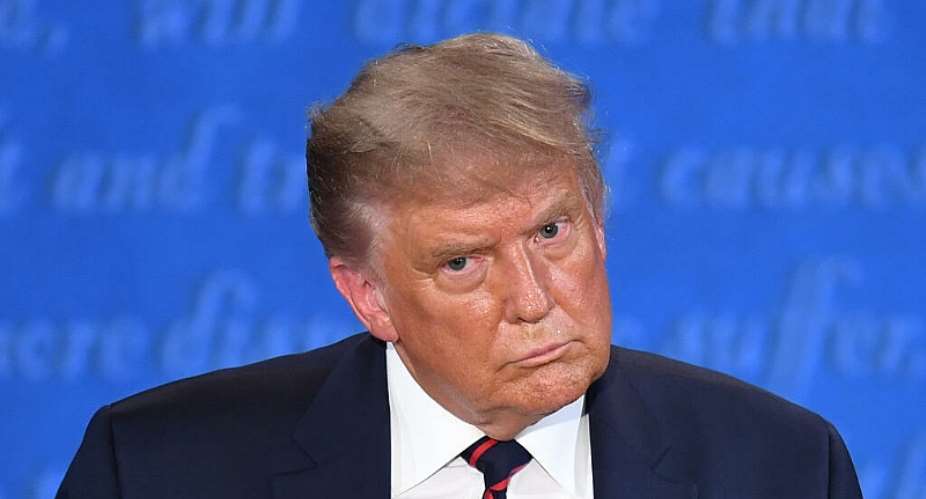Iran said nuclear talks that are set to resume this week in Vienna should focus on lifting sanctions on the Islamic republic and guarantees that the US will return to the fold. In 2018, the American president Donald Trump withdrew from the 2015 agreement and re-imposed sanctions on Tehran.
Negotiations to salvage the 2015 Iran nuclear deal resumed in late November, after a five-month gap following the election of ultraconservative Ebrahim Raisi as Iranian president.
The talks seek to bring back the United States after it withdrew from the accord in 2018 under Trump and began imposing sanctions on Iran.
Iran has reported progress in the talks but European diplomats have warned they are rapidly reaching the end of the road.
US negotiator Rob Malley has said there are only weeks left to revive the deal, if the Islamic republic continues its current pace of nuclear activities.
The talks are expected to get underway in the Austrian capital on Monday evening, according to a source close to the negotiations.
Different views of the priorities
Ahead of the resumption, Iran's Foreign Minister, Hossein Amir-Abdollahian, said the agenda on Monday should be the issue of guarantees and verification on the lifting of US sanctions if it returns to the accord.
"The most important thing for us is to reach a point where we can verify that Iranian oil will be sold easily and without any limits, that the money for this oil will be transferred in foreign currency to Iranian bank accounts, and that we will be able to benefit from all the revenues," he said, quoted on Monday by state news agency IRNA.
The opening of the eighth round of the talks involves delegations from Iran and the other countries that remain party to the landmark accord - Britain, China, France, Germany and Russia.
The multilateral nuclear deal reached in 2015 offered Iran a lifting of economic sanctions in return for strict curbs on its nuclear activities.
The goal was to make it practically impossible for Iran to build an atomic bomb, while allowing it to pursue a civilian nuclear programme.
The deal started to unravel in 2018 when the Trump administration pulled out and began imposing sanctions.
Trump's successor, Joe Biden, has said he is willing to return to the deal as long as Iran accepts the original terms.
Growing concern in Israel
Iran, which denies any ambition to acquire a nuclear arsenal, has gradually abandoned its commitments to the accord since 2019, mainly by stepping up its enrichment of uranium.
The UN's nuclear watchdog, the International Atomic Energy Agency, recently expressed concerns over Iran's growing stockpile of highly-enriched uranium.
Iran's arch-rival Israel, which opposes the nuclear deal, had reportedly warned in November that Iran had taken the technical steps to prepare to enrich uranium to military-grade levels of around 90 percent.
"Stopping Iran's nuclear programme is the primary challenge for Israeli foreign and security policy," Israel's Foreign Minister Yair Lapid said on Monday.
"We prefer to act through international cooperation, but if necessary, we will defend ourselves, by ourselves," he added.





 Former Kotoko Player George Asare elected SRC President at PUG Law Faculty
Former Kotoko Player George Asare elected SRC President at PUG Law Faculty
 2024 elections: Consider ‘dumsor’ when casting your votes; NPP deserves less — P...
2024 elections: Consider ‘dumsor’ when casting your votes; NPP deserves less — P...
 You have no grounds to call Mahama incompetent; you’ve failed — Prof. Marfo blas...
You have no grounds to call Mahama incompetent; you’ve failed — Prof. Marfo blas...
 2024 elections: NPP creates better policies for people like us; we’ll vote for B...
2024 elections: NPP creates better policies for people like us; we’ll vote for B...
 Don’t exchange your life for wealth; a sparkle of fire can be your end — Gender ...
Don’t exchange your life for wealth; a sparkle of fire can be your end — Gender ...
 Ghana’s newly installed Poland train reportedly involved in accident while on a ...
Ghana’s newly installed Poland train reportedly involved in accident while on a ...
 Chieftaincy disputes: Government imposes 4pm to 7am curfew on Sampa township
Chieftaincy disputes: Government imposes 4pm to 7am curfew on Sampa township
 Franklin Cudjoe fumes at unaccountable wasteful executive living large at the ex...
Franklin Cudjoe fumes at unaccountable wasteful executive living large at the ex...
 I'll 'stoop too low' for votes; I'm never moved by your propaganda — Oquaye Jnr ...
I'll 'stoop too low' for votes; I'm never moved by your propaganda — Oquaye Jnr ...
 Kumasi Thermal Plant commissioning: I pray God opens the eyes of leaders who don...
Kumasi Thermal Plant commissioning: I pray God opens the eyes of leaders who don...
